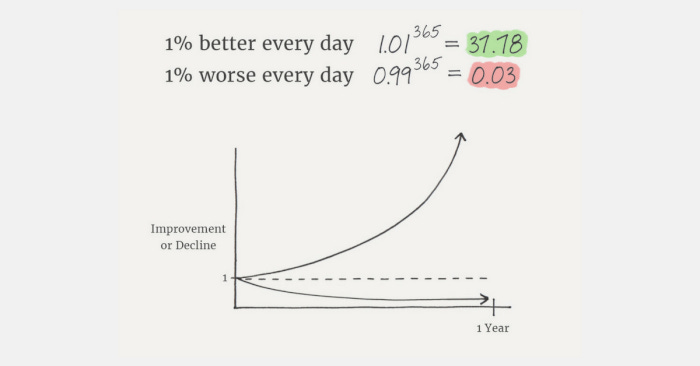The Power of Marginal Gains: Sir David Brailsford's Winning Philosophy....
Sir David Brailsford's marginal gains philosophy is a great philosophy to take into this new year.
Happy new year!
Most people enter a new year setting big goals and resolutions which is great but it’s so easy to underestimate the power of marginal gains; getting 1% better everyday. A defining sporting moment to learn from is the story of the coach that improved every tiny thing by 1 Percent.
In 2003, the Great Britain cycling organisation hired Sir David Brailsford as its new performance director. For many years professional cyclists in Great Britain had endured nearly one hundred years of mediocrity. Since 1908, British riders had won just a single gold medal at the Olympic Games, and in 110 years no British cyclist had ever won cycling’s biggest race, Tour de France.
The performance of British cycling was so bad that one of the top bicycle manufacturers in Europe didn’t want to associate themselves with Team GB’s poor reputation and refused to sell the team bicycles.
Sir David Brailsford was hired to change the fate of British cycling. His philosophy revolved around the idea that making small, incremental improvements in various aspects of performance can lead to a significant overall advantage. He believed that by focusing on numerous small details and optimising each one, the cumulative effect would result in a substantial competitive edge. This is known as the 1% rule.
Brailsford and his coaches began by making small adjustments you might expect from a professional cycling team. They redesigned the bike seats to make them more comfortable and rubbed alcohol on the tires for a better grip. Then they looked beyond traditional training and equipment improvements. For example, the team used specially designed pillows to ensure a good night's sleep, tested different fabrics for the cycling suits to reduce air resistance, and even taught the athletes proper handwashing techniques to minimise the risk of illness.
Just five years after Brailsford was hired, the story of the British cycling team changed. In the 2008 Beijing Olympics, the British Cycling team dominated the road and track cycling events winning 14 medals in total. This included eight golds, seven of them from the ten events in the velodrome. Four years later, at the London Olympic Games, Team GB raised the bar as they set nine Olympic records and seven world records. Bradley Wiggins also became the first British cyclist to win the Tour de France. The next year, his teammate Chris Froome won the race, and he would go on to win again in 2015, 2016, and 2017, giving the British team five Tour de France victories in six years.
It is so easy to overestimate the importance of one defining moment and underestimate the value of making small improvements on a daily basis. Too often, we convince ourselves that massive success requires massive action. Whether it is losing weight, building a business, writing a book, or achieving any other goal, we put pressure on ourselves to make some earth-shattering improvement in the year.
By taking small daily actions, they compound over time to yield remarkable results. If you can get 1 percent better each day for one year, you’ll end up thirty-seven times better by the time you’re done. (See diagram below)
Small changes are hard to notice when looked at as standalone moments but once you take a step back far enough to see the bigger picture, the differences are apparent. In 2024, I implore you to do one thing each day that will get you closer to your goals, focus on getting one percent better everyday and by the time you look back at the end of the year you’ll be so impressed with how far you’ve gotten. James Clear talks a lot about the power of marginal gains in his book Atomic Habits. If you’re looking for a book to read this year, I highly recommend it.
Success is a few simple disciplines, practiced every day; while failure is simply a few errors in judgment, repeated every day.
—Jim Rohn
Happy New Year once again, wishing you all a great year!

